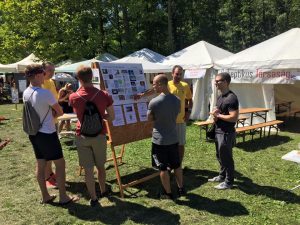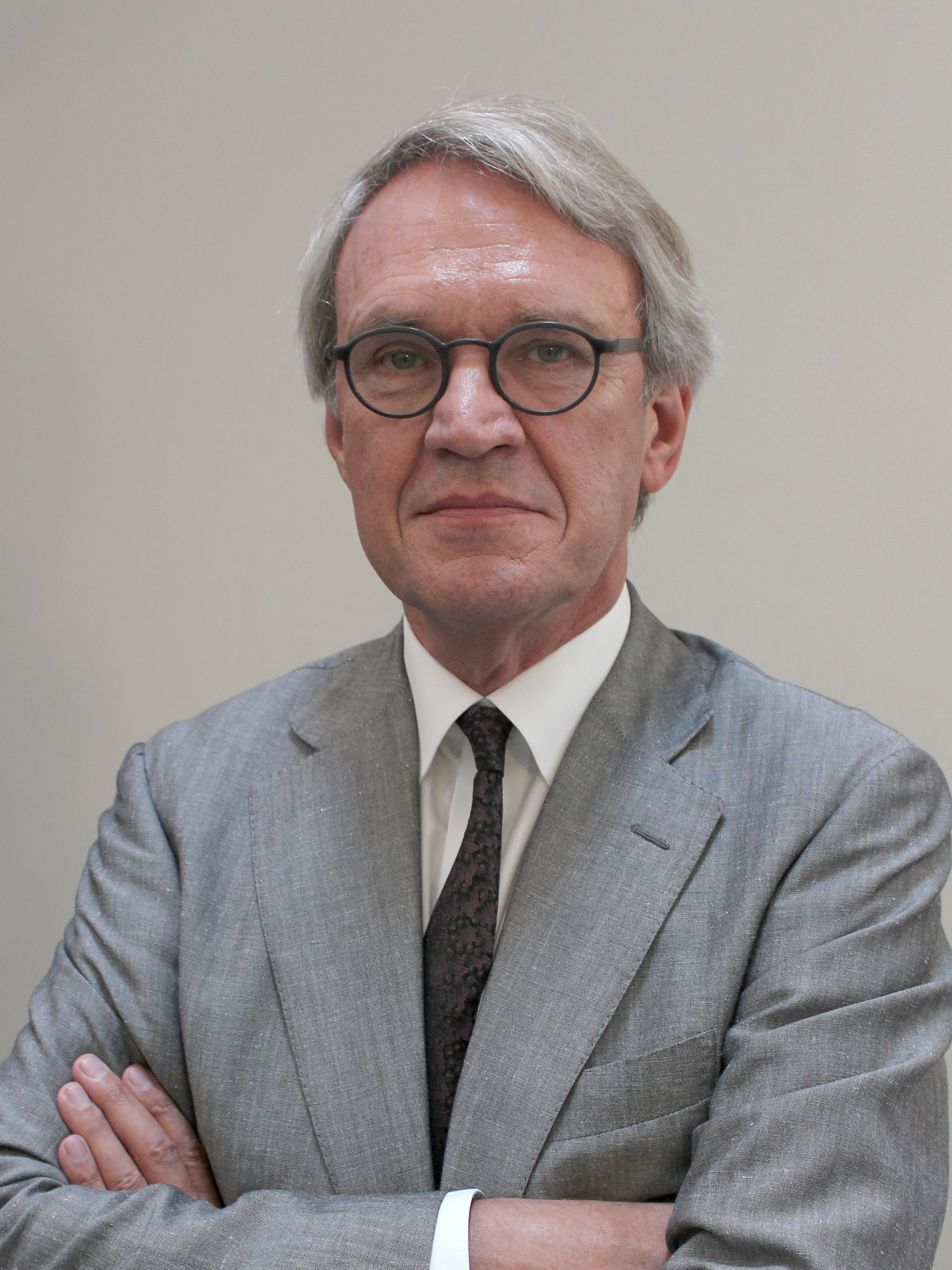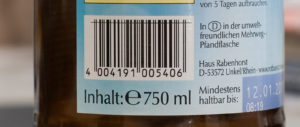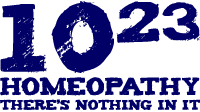 Skeptics in several European cities have taken homeopathic overdoses today to show there’s nothing in it. Despite the lack of any active ingredients, manufacturers and homeopaths claim it becomes dangerous if the prescribed dosage of a homeopathically diluted and shaken remedy is consumed several times. But that’s a myth, the skeptics say, which they’ve gone to prove today.
Skeptics in several European cities have taken homeopathic overdoses today to show there’s nothing in it. Despite the lack of any active ingredients, manufacturers and homeopaths claim it becomes dangerous if the prescribed dosage of a homeopathically diluted and shaken remedy is consumed several times. But that’s a myth, the skeptics say, which they’ve gone to prove today.
 The events are the latest edition of the 10:23 Campaign, first held by SKEPP in Ghent, Belgium in 2004. In 2010, the event was reinvented by the Merseyside Skeptics Society, and first named 10:23 after Avogadro’s number, in several British cities. In 2011, the campaign expanded to a worldwide protest against homeopathy, with people on all seven continents (yes, that includes Antarctica) across 30 countries in 70 cities, with at least 30 participants per city attempting to commit homeopathic suicide.
The events are the latest edition of the 10:23 Campaign, first held by SKEPP in Ghent, Belgium in 2004. In 2010, the event was reinvented by the Merseyside Skeptics Society, and first named 10:23 after Avogadro’s number, in several British cities. In 2011, the campaign expanded to a worldwide protest against homeopathy, with people on all seven continents (yes, that includes Antarctica) across 30 countries in 70 cities, with at least 30 participants per city attempting to commit homeopathic suicide.
This video (German) was recorded by the GWUP skeptics in Hamburg, Germany. Simultaneous events happened in Prague (about 100 participants) and other Czech cities (Brno, Ostrava) and in Bratislava (about 60 participants), Slovakia. Everyone survived, just like in previous years.
An interview with the Czech Skeptics’ Club Sisyfos chairman Leoš Kyša can be read
here (Czech).

This year’s event in the Prague took place in front of the Czech Ministry of Health.

Apart from the usual skeptic crowd, the event welcomed members of the Atheist of the Czech Republic, including their chairman Petr Tomek.
Other interesting participants were the three pro-homeopathy demonstrators, who were disgusted with the whole lot, and left soon after they found out none of the media – TV stations and newspeople – paid them any attention. Pets, cats and dogs, could have been spotted in the crowd, being given homeopathic remedies by their owners.
To make things a little more interesting, the Prague skeptics demonstrated the making of a homeopathic remedy, using rum as the original substance to be diluted.
 In the end, even small children, participating in the even with their parents, were allowed to drink the homeopathic rum.
In the end, even small children, participating in the even with their parents, were allowed to drink the homeopathic rum.
Outrageous?! Why? There’s nothing in it.
More photos: Lidovky
Article photos credits: Vendy
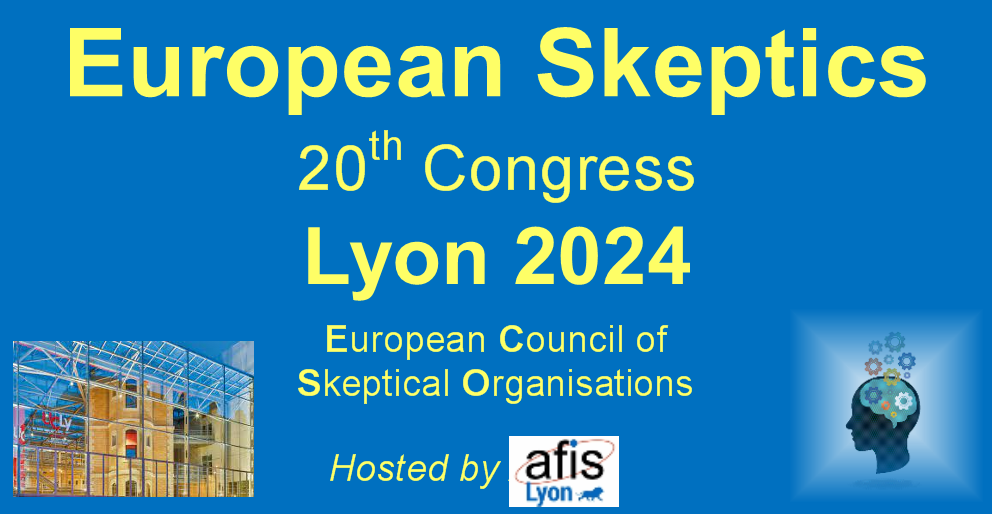
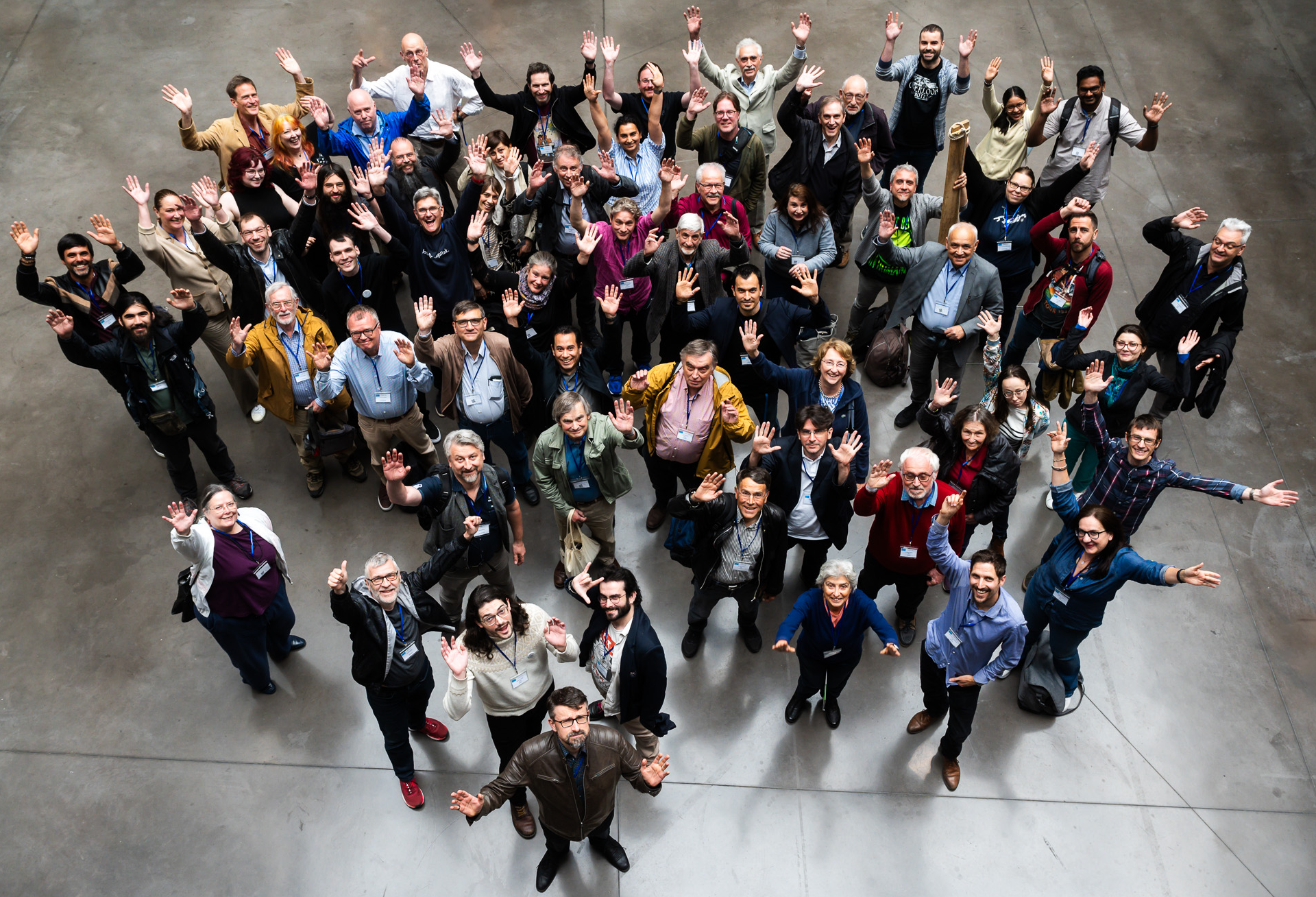

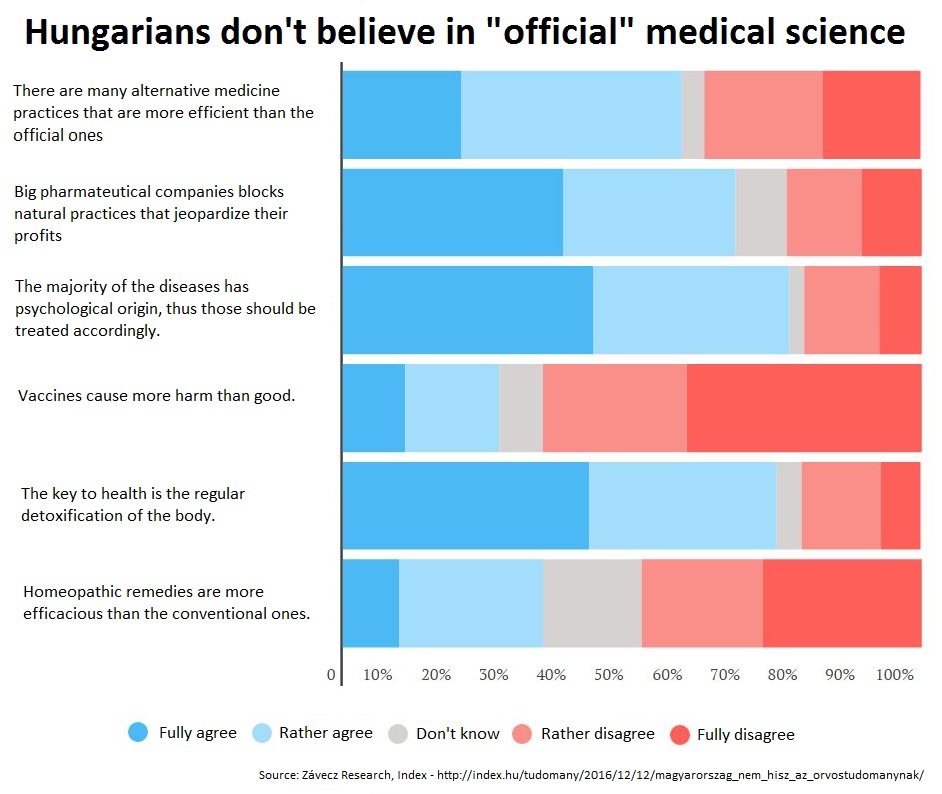




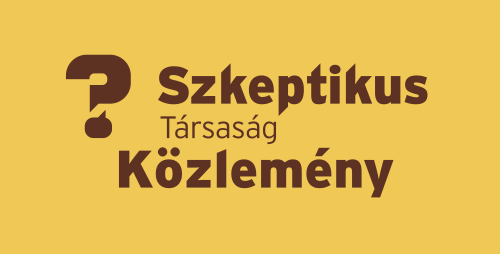



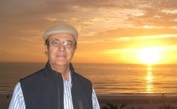
 Skeptics in several European cities have taken homeopathic overdoses today to show there’s nothing in it. Despite the lack of any active ingredients, manufacturers and homeopaths
Skeptics in several European cities have taken homeopathic overdoses today to show there’s nothing in it. Despite the lack of any active ingredients, manufacturers and homeopaths  The events are the latest edition of the
The events are the latest edition of the 

 In the end, even small children, participating in the even with their parents, were allowed to drink the homeopathic rum.
In the end, even small children, participating in the even with their parents, were allowed to drink the homeopathic rum.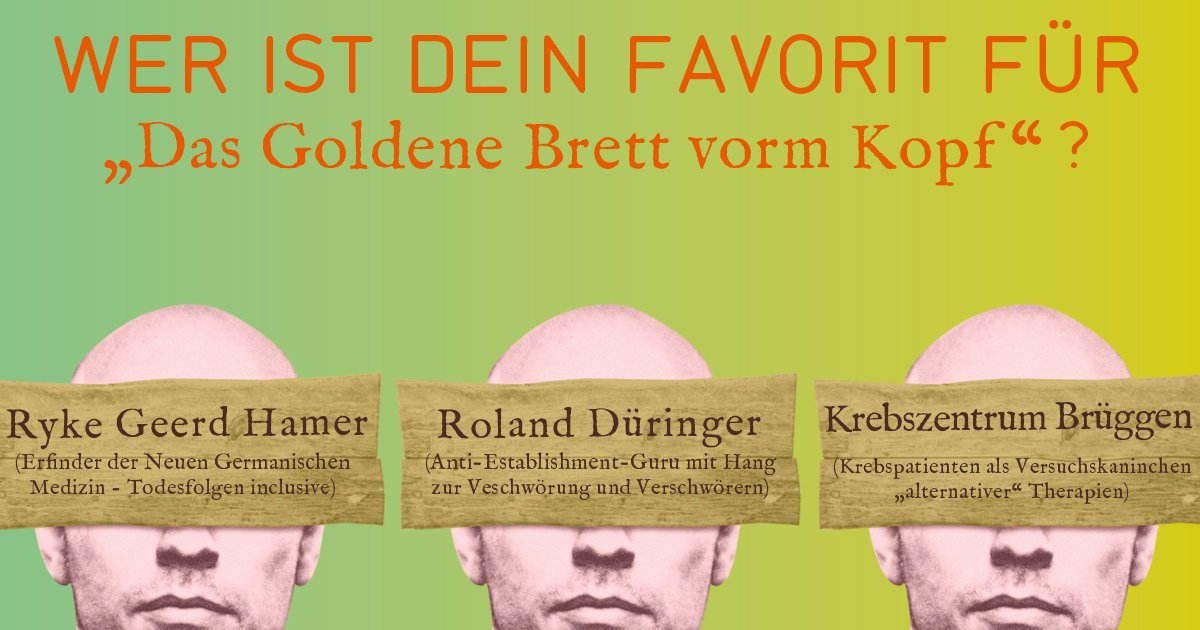


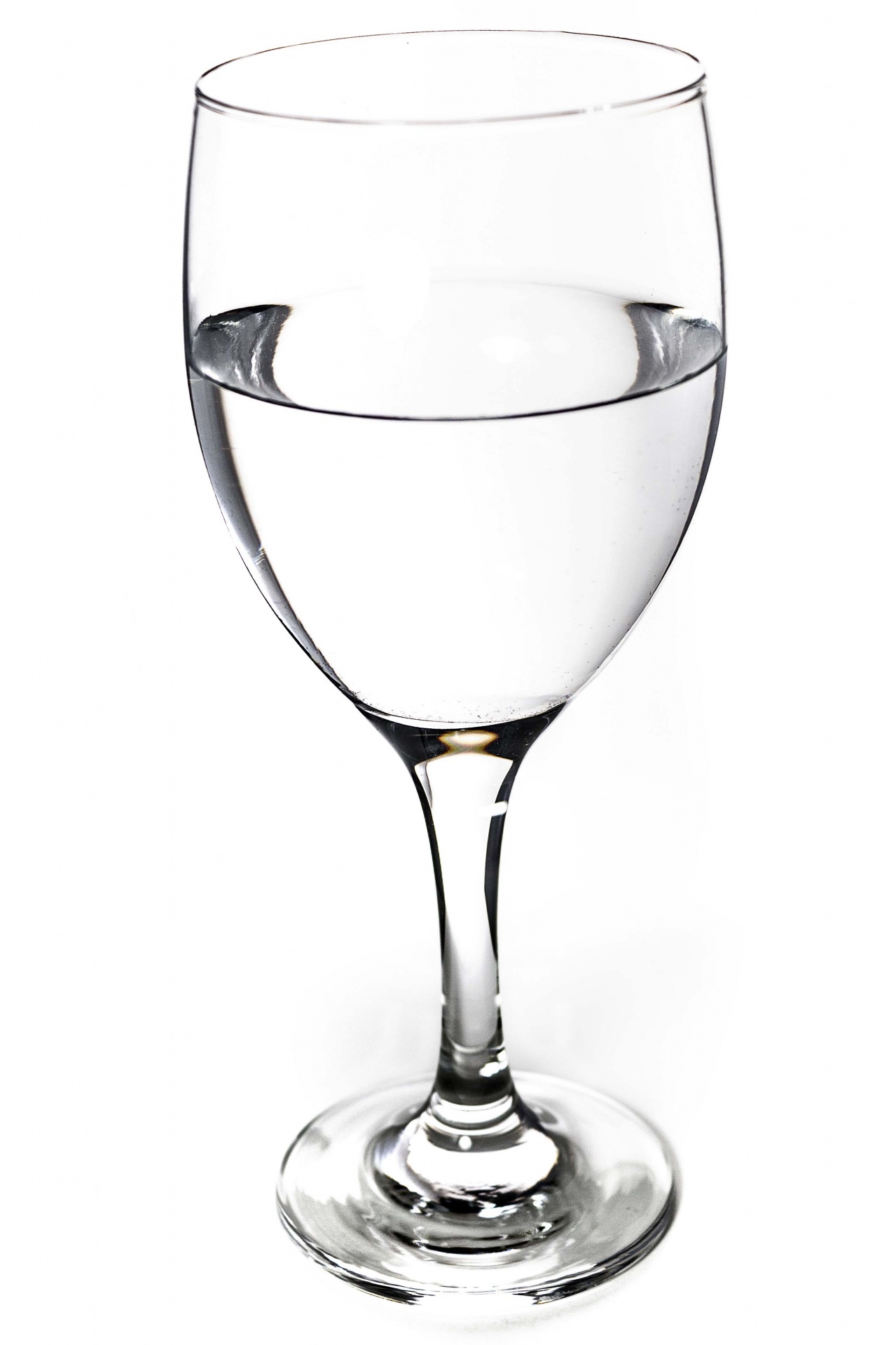

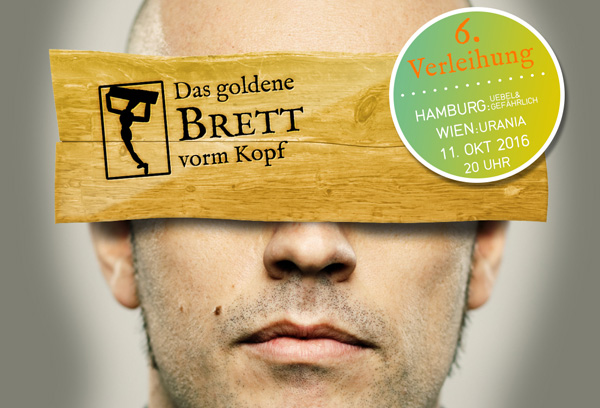
 The Dutch Society against Quackery, Vereniging tegen de Kwakzalverij (VtdK), will hold its annual symposium on 1 October 2016 at
The Dutch Society against Quackery, Vereniging tegen de Kwakzalverij (VtdK), will hold its annual symposium on 1 October 2016 at 
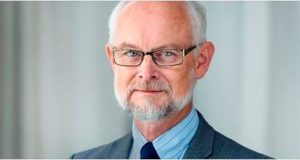

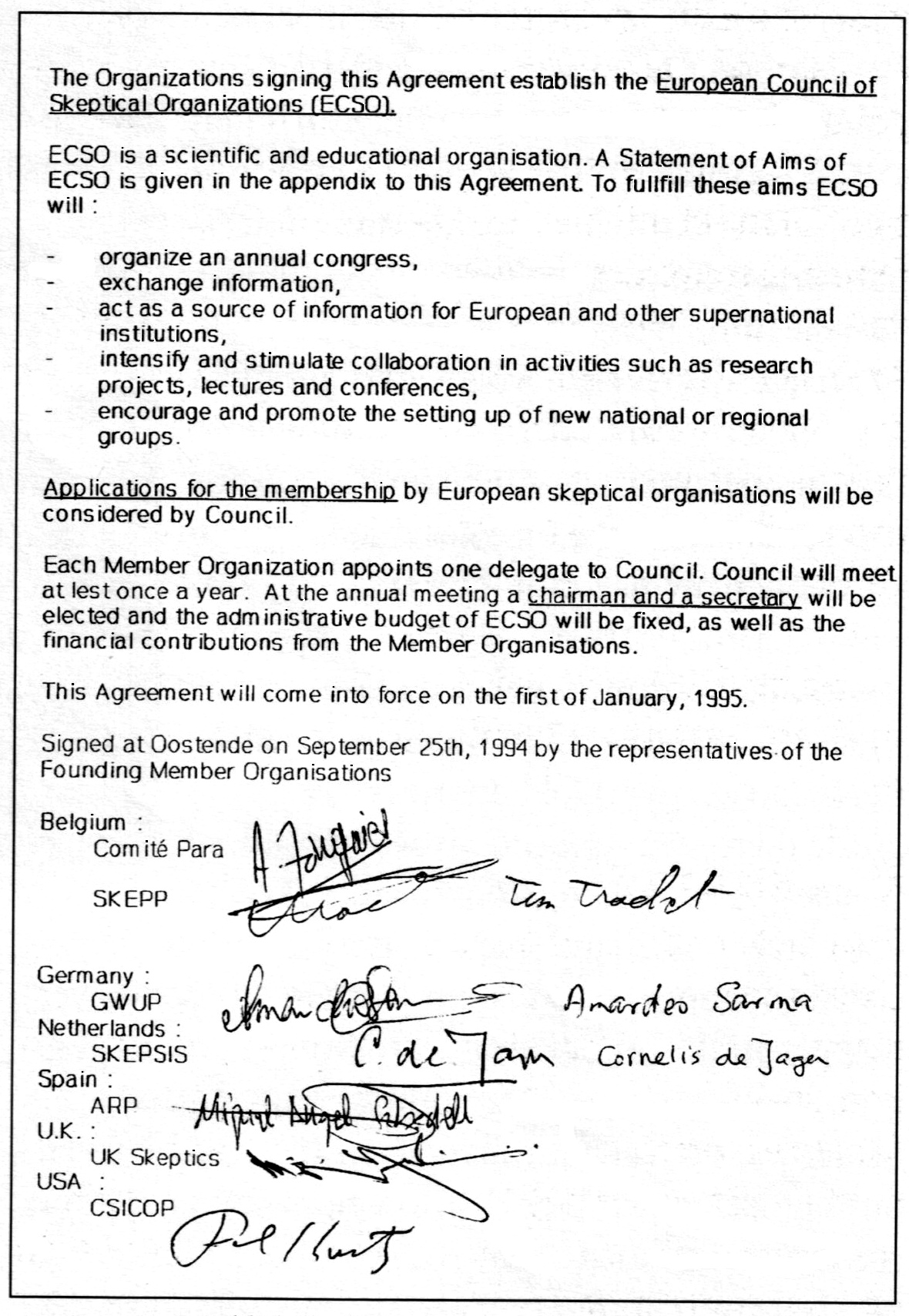
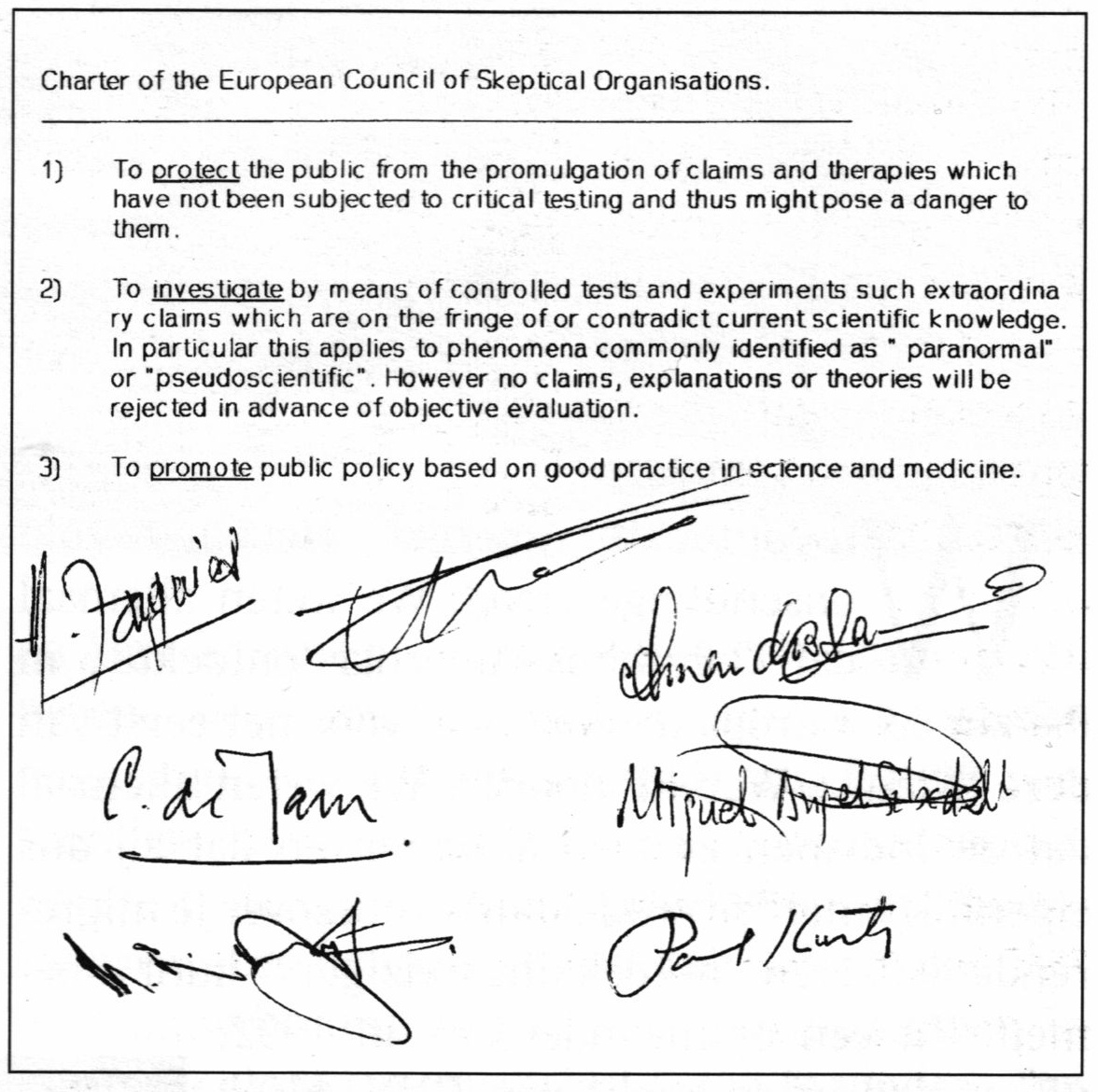 They were drafted during the sixth European Skeptics Congress that was held in Oostende, Belgium. At earlier conferences and in letter correspondence in the run-up to this weekend, extensive negotiations had taken place between eight organisations from different (Western) European countries with the same goal: to protect the public against harmful misinformation, to investigate extraordinary claims and to promote evidence-based science policies. As it happened, the French skeptics’ representative had to return home due to grave family conditions, so seven organisations (including the U.S.-based CSICOP) became the founding members (with the later approval of the national and regional organisations’ boards). Here is a photo of the people who signed on behalf of each (you may recognise some of them):
They were drafted during the sixth European Skeptics Congress that was held in Oostende, Belgium. At earlier conferences and in letter correspondence in the run-up to this weekend, extensive negotiations had taken place between eight organisations from different (Western) European countries with the same goal: to protect the public against harmful misinformation, to investigate extraordinary claims and to promote evidence-based science policies. As it happened, the French skeptics’ representative had to return home due to grave family conditions, so seven organisations (including the U.S.-based CSICOP) became the founding members (with the later approval of the national and regional organisations’ boards). Here is a photo of the people who signed on behalf of each (you may recognise some of them):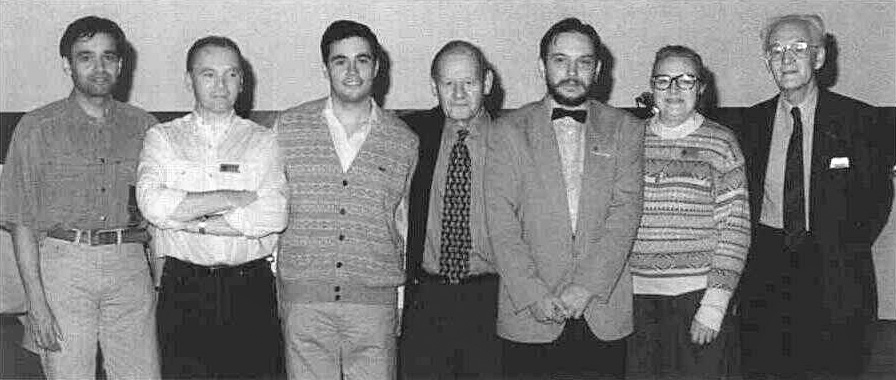

 The
The 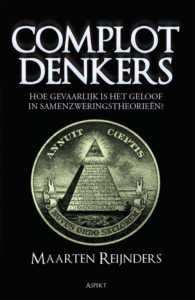 Dutch journalist Maarten Reijnders wrote a book about the currently most popular and (in)famous conspiracy theories and their proponents in the Netherlands. The book, titled Complotdenkers – Hoe gevaarlijk is het geloof in samenzweringstheorieën? (‘Conspiracists – How dangerous is belief in conspiracy theories?’) was deliberately published on 11 September 2016, because the 9/11 Truth movement is one of the most prominent of these phenomena in Western society at the moment. Skeptic Pepijn van Erp wrote a review; here is an excerpt:
Dutch journalist Maarten Reijnders wrote a book about the currently most popular and (in)famous conspiracy theories and their proponents in the Netherlands. The book, titled Complotdenkers – Hoe gevaarlijk is het geloof in samenzweringstheorieën? (‘Conspiracists – How dangerous is belief in conspiracy theories?’) was deliberately published on 11 September 2016, because the 9/11 Truth movement is one of the most prominent of these phenomena in Western society at the moment. Skeptic Pepijn van Erp wrote a review; here is an excerpt: The Dutch skeptics foundation, Stichting Skepsis, will hold its annual congress on 22 October 2016 at
The Dutch skeptics foundation, Stichting Skepsis, will hold its annual congress on 22 October 2016 at 




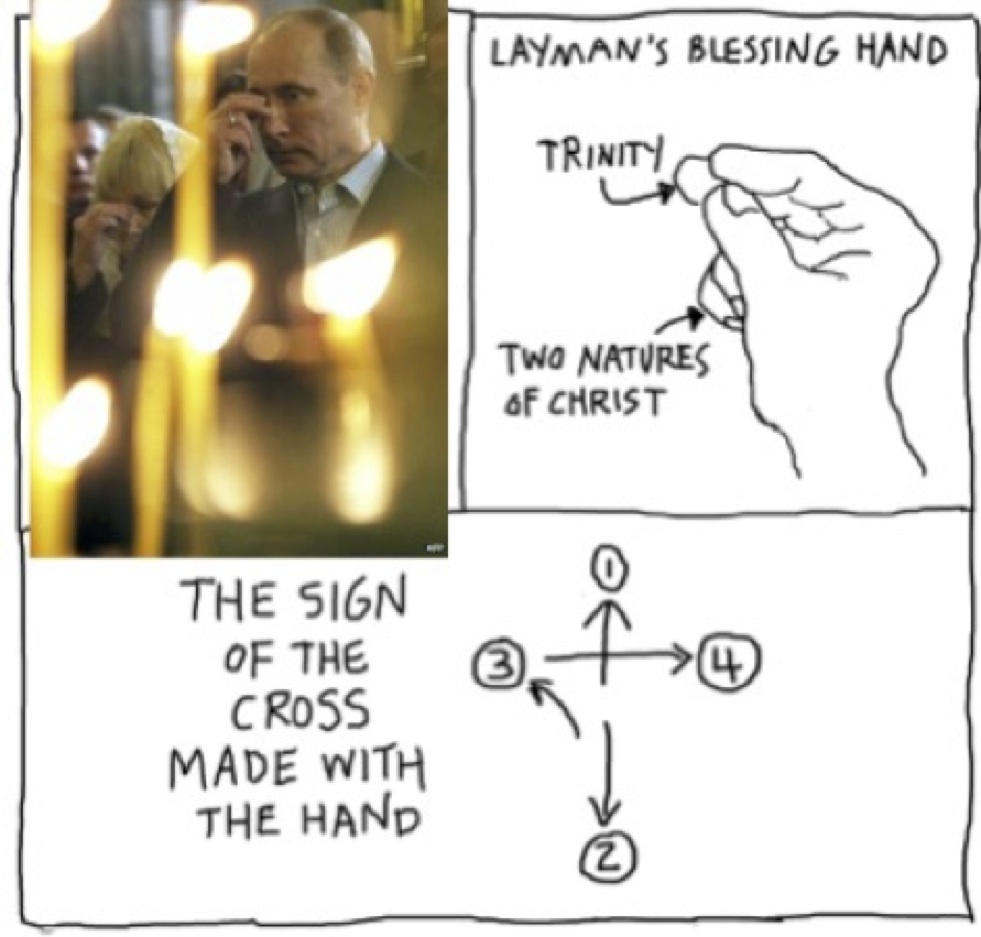 While spending his summer in Poland, someone brought an interesting article to Dutch physicist and skeptic Martin Bier’s attention. It has now been scientifically proven that making the
While spending his summer in Poland, someone brought an interesting article to Dutch physicist and skeptic Martin Bier’s attention. It has now been scientifically proven that making the 